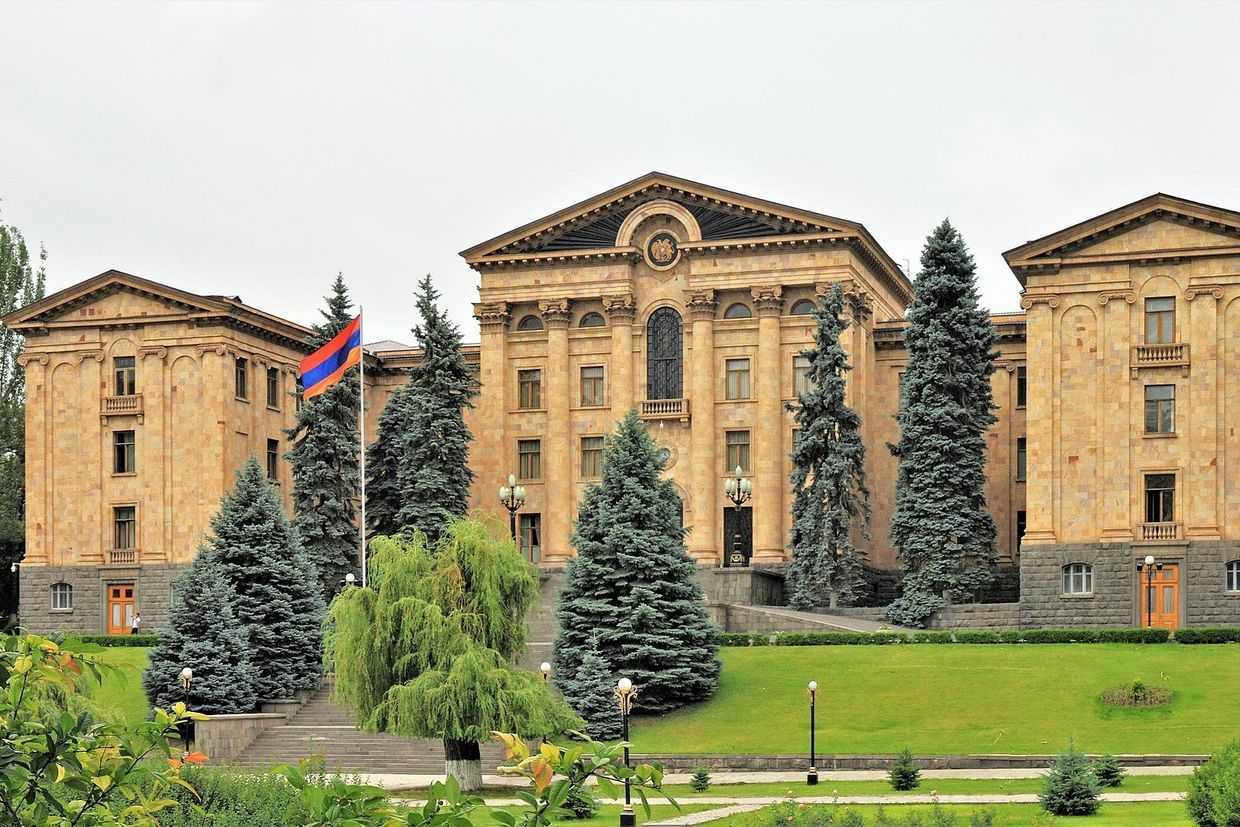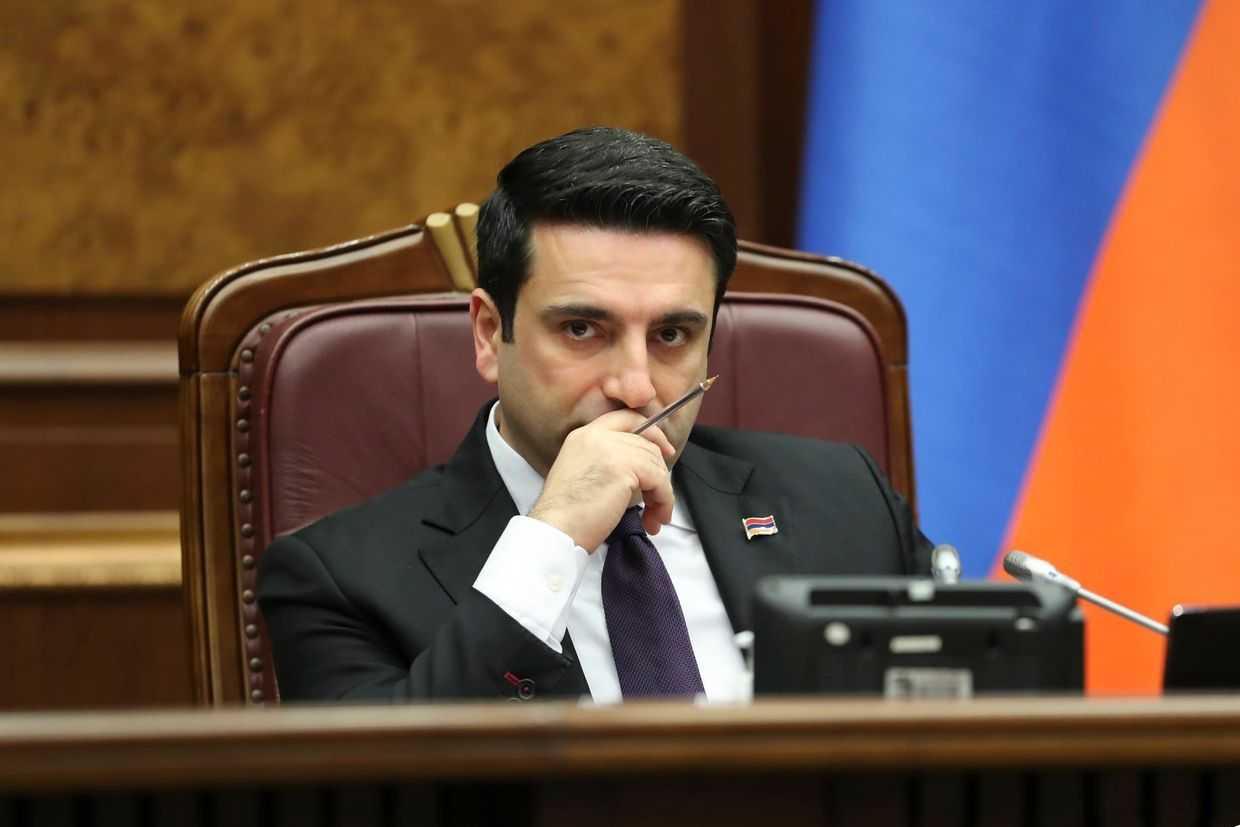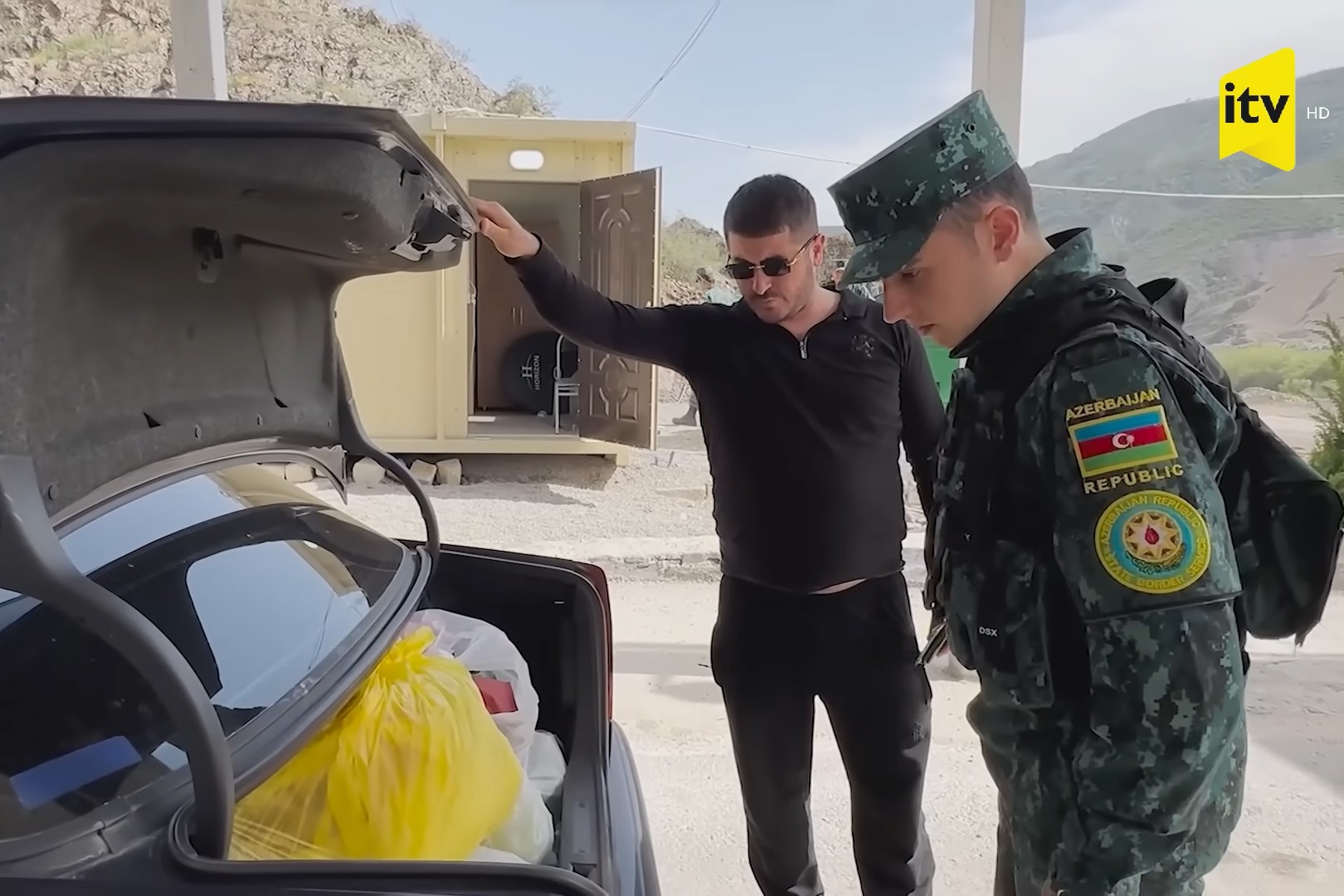
The authorities in Stepanakert have accused the Russian peacekeepers of tricking residents of Nagorno-Karabakh into passing through the Azerbaijani checkpoint on the Lachin corridor, falsely promising that they would not have to undergo checks by Azerbaijani border troops.
The accusation comes after footage appeared to show Armenian vehicles passing through the checkpoint, with Azerbaijani border control officers inspecting their vehicles and documents.
‘As can be seen from the presented footage, people’s border crossing is organised in a neat and polite manner’, Azerbaijan’s ITV reported from the scene.
‘Thus, the claims of the Armenian officials regarding the “ethnic cleansing” of the Karabakh Armenians and the “blocking” of the Lachin road are nothing more than false propaganda’, the pro-government media went on.
Residents of Nagorno-Karabakh have largely been blocked from entering or exiting the region since mid-December, when Azerbaijani-government-supported ‘eco-activists’ blocked the Lachin Corridor near Shusha (Shushi).
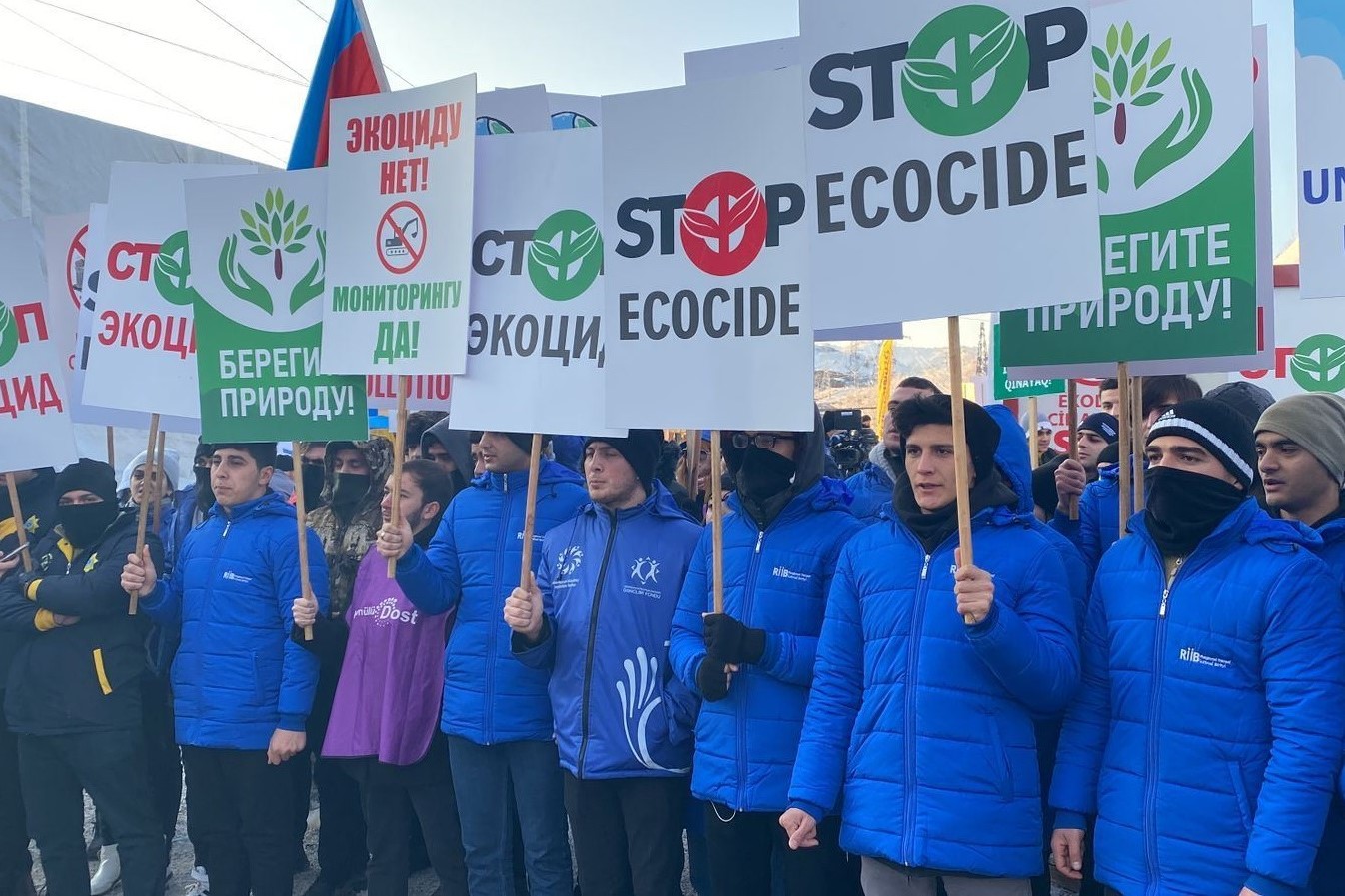
Despite the 2020 ceasefire agreement stipulating that the corridor be controlled by the Russian peacekeeping force, on 23 April, Azerbaijani border troops moved in to set up a checkpoint on the corridor at the Armenian border.
Soon after, the eco-activists announced they were ending their action. However, on 29 April, the authorities in Stepanakert said the protesters had been replaced by Azerbaijani police near Shusha as well.
Mounting criticism of Russia
Shortly after the video of the inspection appeared online, Nagorno-Karabakh officials dismissed it as a ‘cheap show’.
‘The people are from villages near the checkpoint under double blockade and were travelling with the support of peacekeepers, with guarantees of not being bothered’, Artak Beglaryan, an adviser to the State Minister, wrote on Twitter late on Sunday.
Beglaryan referred to the villages of Mets Shen, Hin Shen, Lisagor, and Yeghtsahogh in the Shusha region of Nagorno-Karabakh.
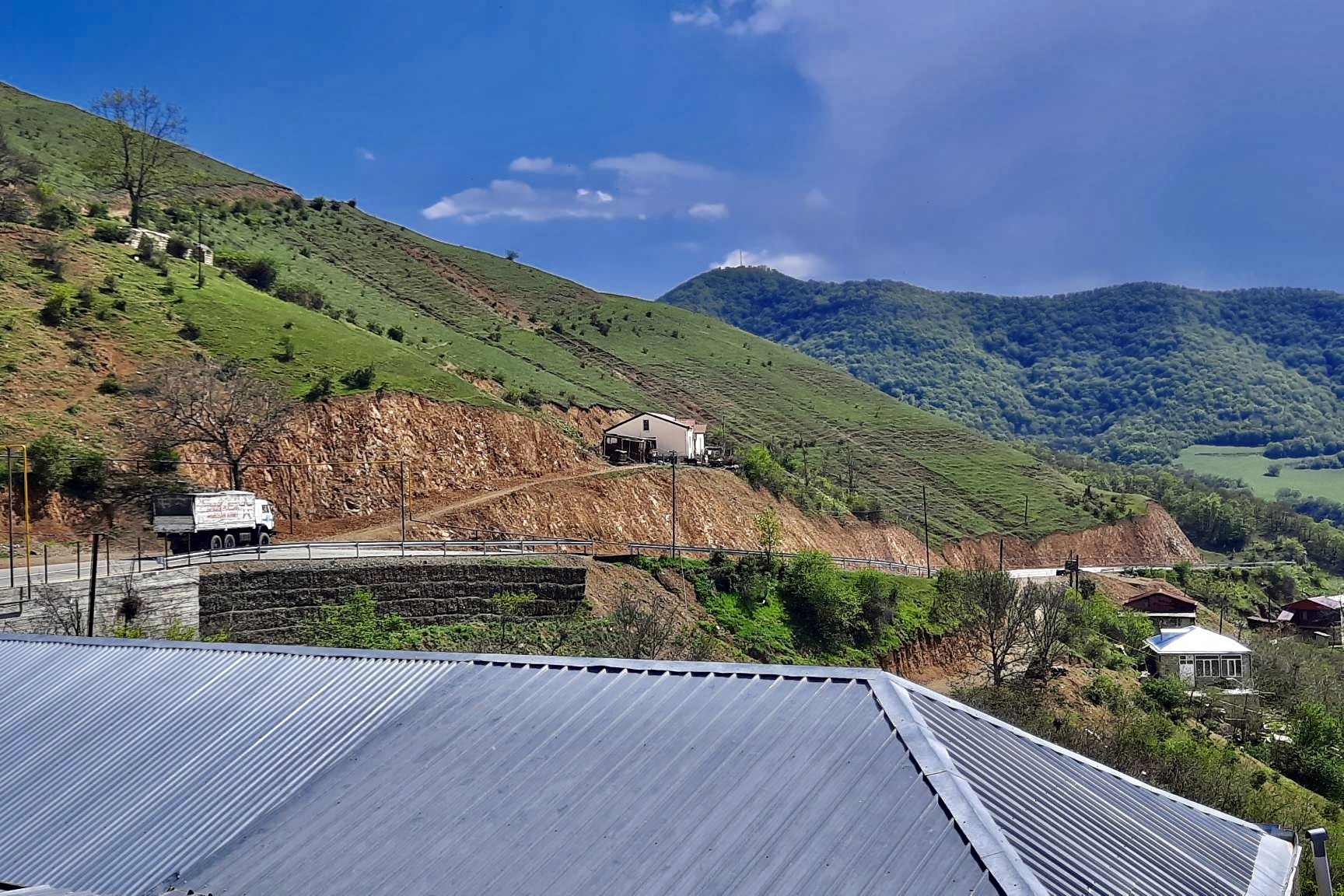
The villages were cut off from the rest of Nagorno-Karabakh after the blockade near Shusha began, and are now separated from Armenia by the new customs checkpoint.
[Read on OC Media: The villages of the Lachin Corridor face ‘double blockade’]
Nagorno-Karabakh’s State Minister Gurgen Nersisyan also issued a statement on Sunday, stating that residents stuck in Goris ‘turned to Russian peacekeepers’, who assured them in advance that ‘there will be no control interference by Azerbaijanis’.
Nersisyan said the residents of Nagorno-Karabakh were waiting for the Lachin Corridor to again be ‘controlled exclusively by Russian peacekeepers’.
Yerevan has also criticised Azerbaijani control over the corridor, calling on Russia to ‘finally fulfil its obligation’ under the 2020 ceasefire agreement and to lift the blockade of the Lachin Corridor. Foreign Minister Ararat Mirzoyan stated last week that Armenia would not take part in the negotiations over the status of the Lachin Corridor, placing responsibility on Russia.
Moscow has remained mild in their criticism of the checkpoint and the blockade of the Lachin Corridor since 12 December.
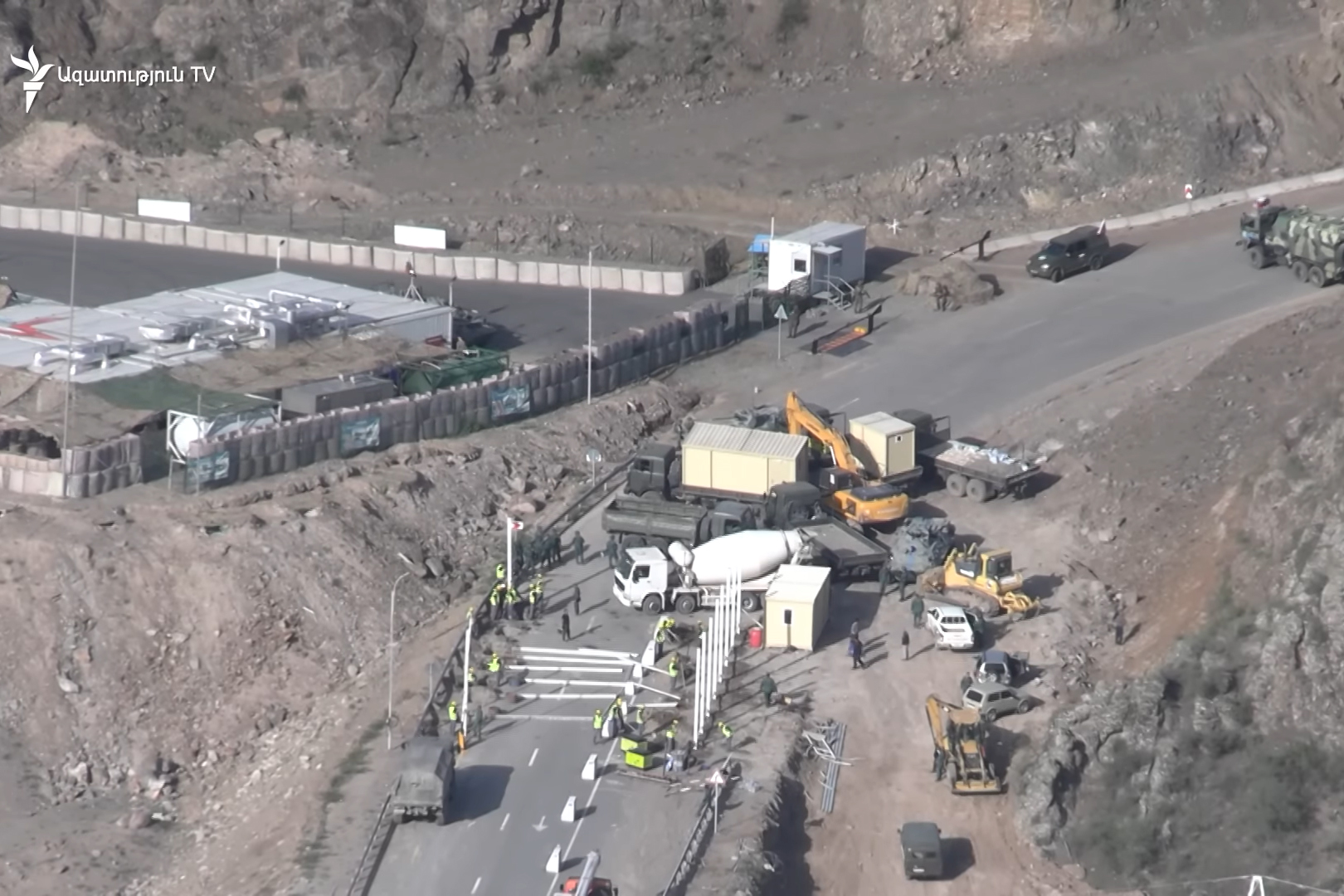
Russia’s failure to regain control of the corridor has led to growing criticism in Armenia and Nagorno-Karabakh.
The authorities in Stepanakert have avoided directly criticising Russia.
But an apparent shift on 30 April, the Nagorno-Karabakh Foreign Ministry mentioned the support and participation of Soviet forces in the 1991 Operation Ring, which saw the forcible displacement of Armenian residents of several villages in and around Nagorno-Karabakh.
The authorities in Stepanakert declined to issue a statement on the anniversary of the start of the operation last year, and their statement in 2021 mentioned only the Azerbaijani authorities as responsible. A statement by the Armenian Parliament in 2021 also did not mention Russia, triggering criticism from some in Armenia, and accusations of ‘falsifying’ history.
For ease of reading, we choose not to use qualifiers such as ‘de facto’, ‘unrecognised’, or ‘partially recognised’ when discussing institutions or political positions within Abkhazia, Nagorno-Karabakh, and South Ossetia. This does not imply a position on their status.
